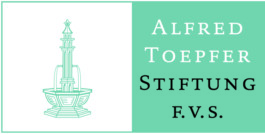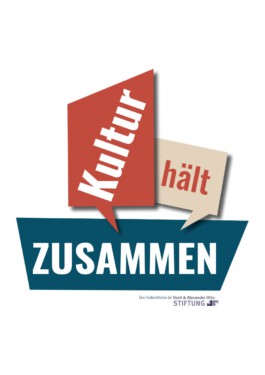EUROPE IS LOST
is a feminist research network and a series of radio plays initiated by Heike Bröckerhoff.
In collaboration with Isabel Bröckerhoff, Elisabeth Fast, Nadja Lindner, Colyne Morange, Livia Piazza, Višnja Sretenović, and new trouble.
„How would you translate that?
- Maybe Evropa je izgubljena. It means something like - we have lost Europe. There is this "we" somehow. Or: izgubljena evropa.... reminds me very much of the legend of Atlantis.
So that would be something like ”Lost Europe“. Something has been lost. By itself."
EUROPE IS LOST is an artistic research project that tackles the question of how we can move through moments of crisis together, focusing on emotional implications and strategies of empowerment. In collaboration with female* artists and researchers from all over Europe, we will develop a series of audio plays about hope, nostalgia, adaptation, denial, and post-identitarian belonging. Accompanied by eco-feminist and post-humanist perspectives we try to move towards another Europe, beyond nation-states. A Europe full of new alliances and practices of solidarity.
„We’re together in this but not one and the same.“ Rosi Braidotti
We think of a crisis as a complex web of ecological, economic, social, geopolitical, and cultural challenges. The pandemic reinforces already existing problems: the rise of nationalism, fear and anti-migrant policies, the Mediterranean has become a liquid grave while products from all over the world travel freely and safely on container ships. Consequences of global warming start affecting central Europeans, and in EU-politics, solidarity appears to be based on economic dependencies rather than ethics.
What to do with that? How to deal with experiences of powerlessness and palsy related to the consequences of this bundle of interrelated crises?
First of all, we acknowledge the feeling. We make room for it, think about it, share it, and use it as a starting point to develop strategies of empowerment. Our tools come from different fields: the performing arts, political education, theory, journalism, or auto-ethnography.
We create fictional scenarios, conduct interviews, perform real actions, and rituals in order to rehearse how to live in a world of unstable and evolving identities, where the human will have found a new place among different species. We want to open up acoustic landscapes where we and those who listen prepare for our uncertain future. And getting prepared means to develop stamina for complexity and to build solid support structures.
The Europe we imagine is made of a multiplicity of new alliances and weird communities : robots communicating with plants about the right dose of fertilizer, nostalgics united sitting together to learn from the past, young and old ladies jumping over generational gaps, and mutating viruses and their hosts coming to terms with their co-existence. We believe in the transformative power of storytelling and that’s where we start from. Let’s see how we get along...
Heike Bröckerhoff works in the field of performance, choreography and radio and likes to combine these media to address socio-political issues. As an independent dance dramaturge, she has been working at Kampnagel and K3 - Tanzplan Hamburg and in France for many years. In her work she is particularly interested in collective processes that build new (temporary) communities. That’s how she came up with Europe is Lost, too. During the first lockdown she invited colleagues from different countries in order to jointly confront the experiences and feelings triggered by a bundle of interrelated crises in Europe.
https://www.heikebroeckerhoff.de/
Isabel Bröckerhoff works as a freelance copywriter, translator and speaker. She studied cultural studies, social sciences, philosophy and media studies at the University of Leipzig and the Technical University of Berlin. She lived and worked in San Francisco. There she was able to experience what it means to be perceived as a European citizen, regardless of nationality.
Elisabeth Fast was born in Nizhny Tagil in the former Soviet Union and moved to Germany with her family at the age of 10. She completed her master's degree in Cultural Studies at the University of Leipzig and in European and Global Studies in Trondheim. She is bound to the post-Soviet region also through her own academic and political work in and about the region. She currently works for the Amadeu Antonio Foundation Saxony in the project Debunk - Conspiracy Theory Anti-Semitism.
Nadja Lindner is a cultural scientist with a passion for acoustics. She works as a freelance creator of arts and culture, as a cultural manager and translator in Berlin. She studied media and cultural studies in Düsseldorf and comparative studies for literature, art and philosophy in Barcelona. Her interest in the medium of radio play has resulted in several acoustic (co-)creations.
Colyne Morange is a performer, director, and writer. After studying drama at Drama Conservatory of Nantes, Institut des Arts de Diffusion (Belgium), French Literature and Foreign Languages at the University of Nantes, she worked on new theatrical formats breaking down boundaries between different media. Based in Nantes, she is founder and artistic director of the "Stomach Company" and associated artist at TU Nantes.
http://stomachcompany.free.fr/
Livia Andrea Piazza works as a researcher in the field of Cultural Studies focusing on art and politics. She is currently teaching at the Institute for Applied Theater Studies at the Justus-Liebig-Universität University Giessen and at the Bocconi University in Milan. She has been involved in various collective research platforms (e.g. Aleppo/Brussels), curated theory formats in the context of art festivals and institutions (Festival Santarcangelo, Pact Zollverein, Essen) and works as a freelance dramaturge in the field of performance and dance.
Višnja Sretenović works as a director, writer, performer and actress. She graduated in BA Acting at the Faculty of Performing Arts in Belgrade and MA Performance Studies at the University of Hamburg. She creates essayistic texts and moving images, combining fiction with documentary elements and turns these materials into cross-genre performative events.
https://www.visnjasretenovic.com/
new trouble is the artistic collaboration between choreographer Antje Velsinger, sound artist Julia Krause, cultural producer Christina Gießmann and dramaturg Heike Bröckerhoff. Together they develop choreographic, multimedia stage pieces. Their work is motivated by social issues, which they investigate with the means of art. In their current research project FUTURE RELATIONS, they address the question of how we can rethink and reshape relationships in face of the climate crisis.
https://antjevelsinger.com/


